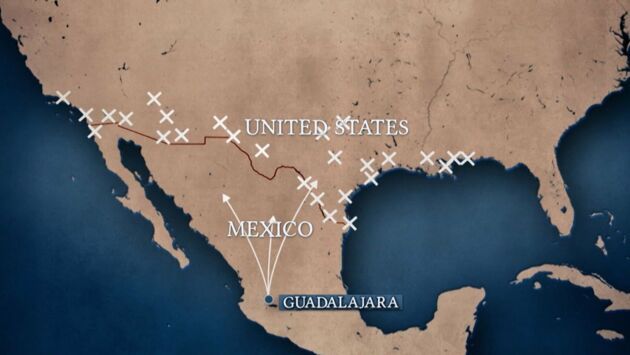The Story of Drug Trafficking • 2020 • 3 episodes • 2h:39m
There are few commodities as global as drugs. How did this trade influence relations between states, global financial interests, secret diplomacies, secret special forces and mafias, on all continents for two centuries. How the powers that be allowed the drug trade to grow and flourish, the hidden side of free trade. This dense and clear fresco shatters preconceived ideas by demonstrating the impasse of prohibition. Drug trafficking was invented by one state: the United Kingdom. In the 19th century, the British Crown flooded China with opium to replenish its coffers. From the outset, opium, heroin and cocaine became political instruments in the hands of states. Major powers, pharmaceutical industries, banks, secret services: all have played a role in the spread of drugs and the emergence of the largest criminal organizations. From the opium wars to the birth of the French Connection, from the hippy years to the rise of the great drug barons, from Escobar to El Chapo, from the Afghan mountains to Wall Street, a political history of drugs is taking shape. A historical and worldwide investigation in three episodes, this series explores the history of drug trafficking from a political perspective and reveals the murky role played by many states which have used the drug trade as an instrument of power. Opium, heroin, cocaine, and designer drugs have sparked wars, financed militias, and brought down states.
Drug trafficking was not invented by a mafia but by the European colonial powers in the 19th century. Opium use spread throughout Asia, promoted by colonial powers. Meanwhile, the western pharmaceutical industry was developing some miraculous products, such as morphine, cocaine, and heroin. Addiction became a global scourge, and prohibition gradually became the norm. But outlawing these substances at the beginning of the 20th century gave rise to the first drug-trafficking networks, which often sought to operate under state protection, in Mexico, France and China… These networks underwent unprecedented growth during the Cold War, when secret services used the drug trade as a geopolitical instrument. The United States paid the price for this: In 1970, one third of their troops in Vietnam were addicted to heroin. A year later, in an historic speech, President Richard Nixon launched the war on drugs.
S1E1 • 2020 • People
The first world power goes to war against drugs: the United States strikes hard. But the drug trade never dies. It moves, transforms, adapts. As the war on drugs progresses around the world, a new generation of drug lords emerged at the end of the 1970s, more powerful than ever. These criminals were not only in it for the money; they also wanted power. Pablo Escobar was the most notorious, but there was also Toto Riina in Sicily, Khun Sa in the Golden Triangle, and Felix Gallardo in Mexico, all of whom changed the destinies of their respective territories by taking drug trafficking to a global scale. They defied states and threatened the powers-that-be. It took almost 20 years for states to get organized and come up with strategies to bring down the drug barons.
S1E2 • 2020 • People
The third episode opens on a world of drug trafficking that has been fragmented by the efforts of the police. Dealers have now changed; invisibility is their chief weapon. The trade has shifted to areas beyond law-and-order, like war zones in Afghanistan or areas with guerilla activity like Colombia. Designer drugs, which are easy to manufacture and conceal, play a key role in the transformation of the traffic. In Mexico, the cartels have dragged the whole country into a merciless spiral of violence – wherever one looks, the toll of the war on drugs makes for grim reading. Synthetic drugs, which are easy to manufacture and conceal, herald the fourth generation to come: traffickers in white coats. This poses the question: Is it time to legalize drugs, radically changing the current situation and perhaps the way we perceive them?
S1E3 • 2020 • People


